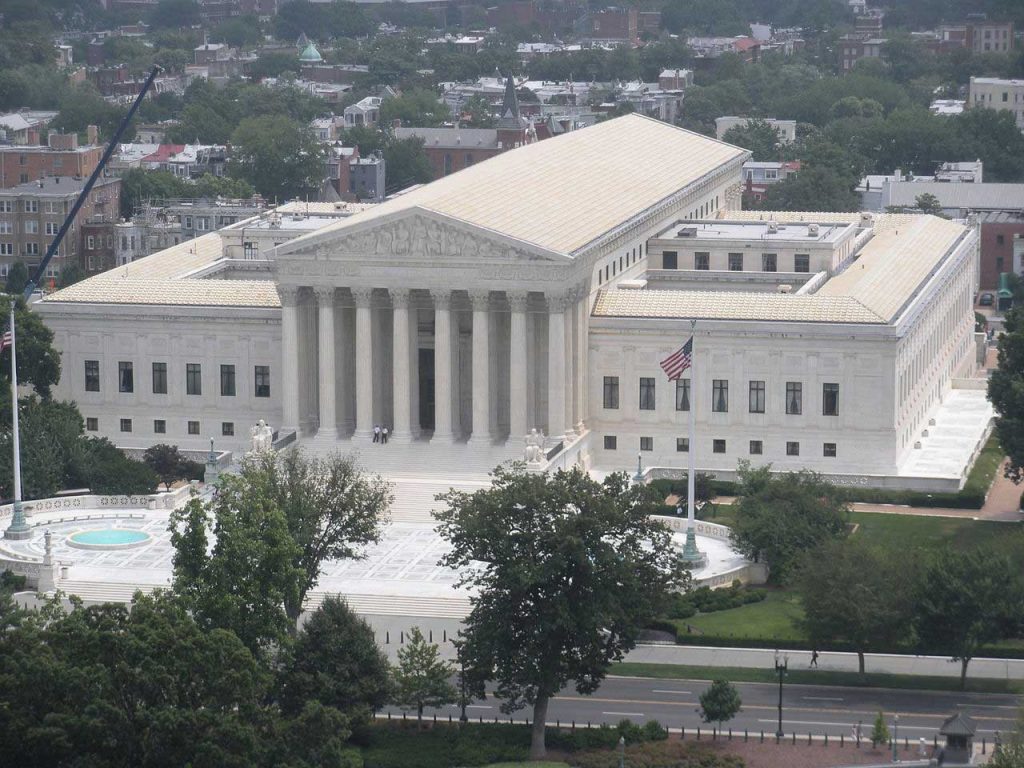Ruling on the case ‘Dobbs vs. Jackson Women’s Health Organization,’ the United States Supreme Court has overturned the decades-old ‘Roe vs. Wade’ with a 6 – 3 vote.
The ruling has set off a broad debate on women’s reproductive rights vs. their responsibility towards an unborn life. Simply put, the federal regulations will make it very difficult for women to get an abortion. However, several states (read Democratic government-ruled states) are expected to follow their own laws and provide access to abortion or related healthcare.
California Democratic Governnor Gavin Newsom has already made it clear.
The US Vice-President Kamala Harris held a meeting with attorney generals of states to ‘protect reproductive healthcare access.’
The ruling was almost out earlier in May when a draft of the court opinion was leaked and confirmed to be authentic. The following is our article post-leak, explaining the case and its significance.
The Abortion Case that’s put America on the Edge
The famous case in the question and the ruling are not new. But the prospect of that ruling being overturned can have a profound impact on contemporary politics, women’s rights, the faith of the believers, etc.

Recently, the United States political journalism organization Politico leaked a draft of a United States Supreme Court decision that could overturn the 1973 U.S. Supreme Court landmark court case, Roe vs. Wade. The Court had previously ruled that the United States Constitution protects a woman’s right to have an abortion without excessive government interference before a fetus can survive outside the womb, generally understood to mean around 24 weeks of pregnancy.
Such a leak is unprecedented, given the secret nature of the Court’s process. The source of the leak is unclear. Chief Justice John Roberts has ordered an investigation.
What prompted the Supreme Court to re-visit the Judgement?
The draft to overturn Roe vs. Wade is part of the Court’s decision in Dobbs v. Jackson Women’s Health Organization, a case challenging the state of Mississippi’s law banning abortion at 15 weeks or later. Although the law is unconstitutional under Roe vs. Wade, Mississippi lawmakers passed it hoping it would be challenged in the Supreme Court, leading the conservative majority of Supreme Court justices to overturn or severely limit Roe.
In the decision, Associate Justice Samuel Alito, nominated to the Court by former President George W. Bush, writes in a 98-page decision that Roe v. Wade must be overturned. He states the decision was wrong with no such right implicitly protected by the Constitution. According to Alito, it’s time to return abortion to the people’s representatives.
Is it that simple?
The decision arguably presents contradictions. One is that it ignores the role of precedence. If the Supreme Court overturns Roe, it will ignore nearly 50 years of legal cases supporting it, thus ignoring precedence, which the Supreme Court rarely does.
Overturning Roe vs. Wade would also be against the wishes of the American people. According to polls, only about one-third of Americans polled support overturning the federal right to abortion. In addition, the Alito decision contradicts the conservative’s take on the role of government. Conservatives in the United States typically believe government should not interfere in the lives of the American people. Arguably, overturning Roe would put the government front and center in a women’s reproductive health decisions and a doctor’s provision of medical care.
What the overturn of the decision could mean?
The draft of the decision does not mean the Court will overturn Roe vs. Wade. However, it indicates a strong likelihood. The opinion is drafted. The necessary number of justices is committed to doing so.
Overturning Roe vs. Wade would not make abortion illegal across the United States. Rather, it would mean the federal right to abortion no longer exists. And each of the 50 states would decide if abortion was still legal in that state. Some states, like Colorado, New Jersey, and New York, have laws protecting the right to an abortion. But other states do not and instead have laws ready to ban an abortion upon the overturning of Roe. In states without laws recognizing a right to an abortion, like Mississippi, women would have to cross state lines to Colorado, for example, to obtain one. This may be particularly challenging for women living in poverty who lack financial resources.
Another consequence, largely ignored, is the financial impact on state and local governments, particularly in states recognizing the right to abortion. In New York state, for example, where abortion is legal, Governor Kathy Hochul has announced the creation of a $250 million fund to provide abortions to those coming from states where abortion is illegal. Accordingly, shifting abortion to the states essentially financially penalizes already cash-strapped states which acknowledge a women’s right to have an abortion.